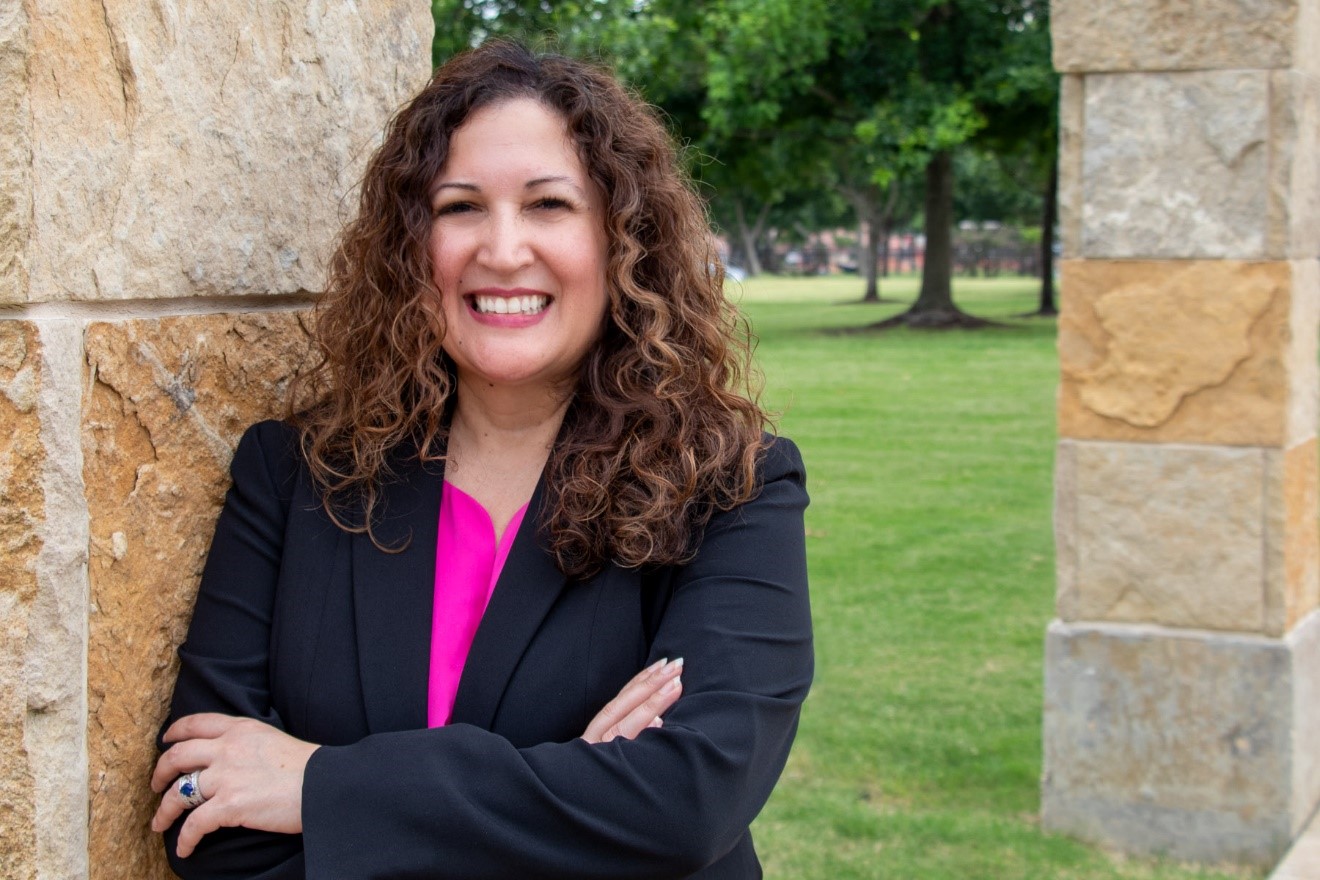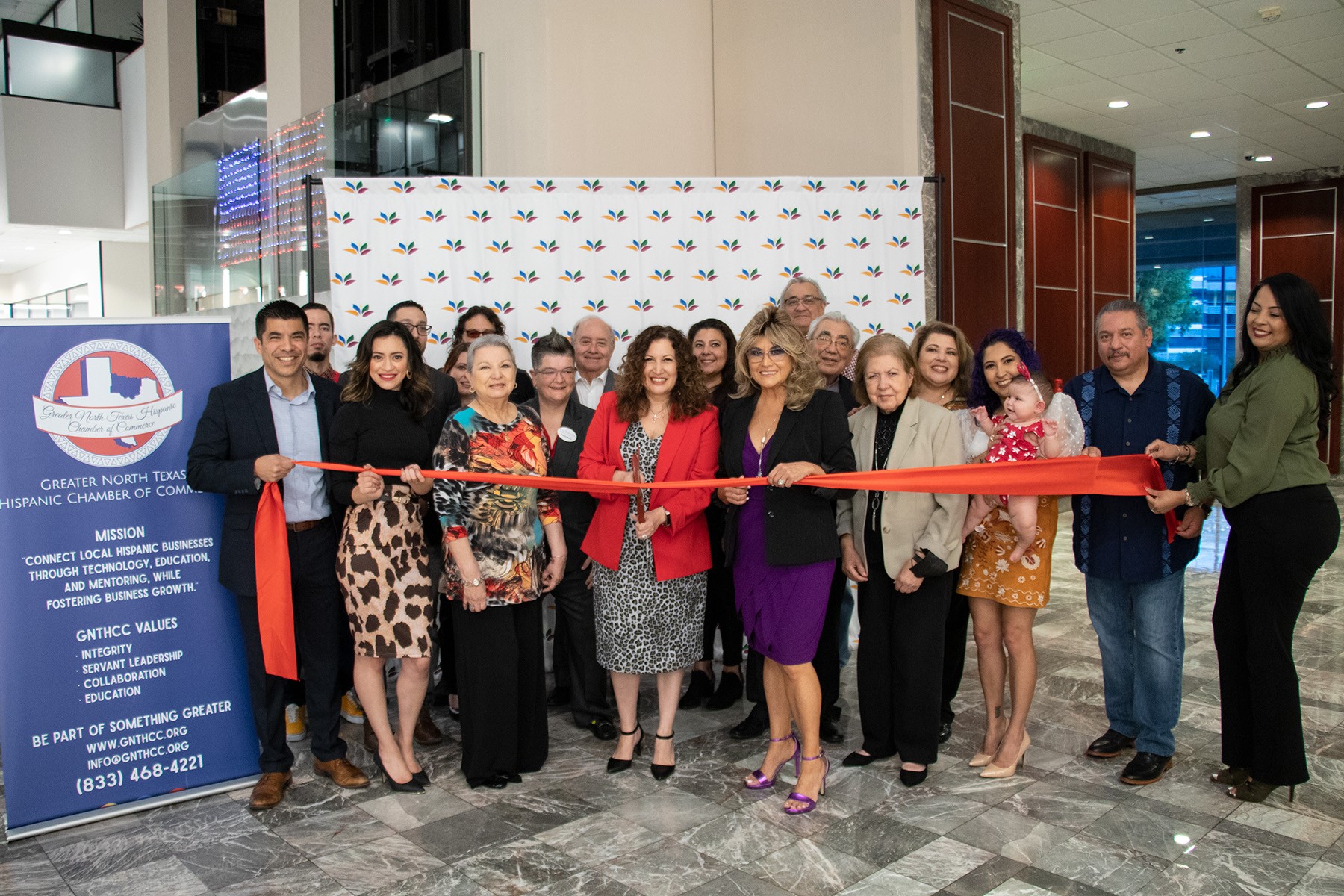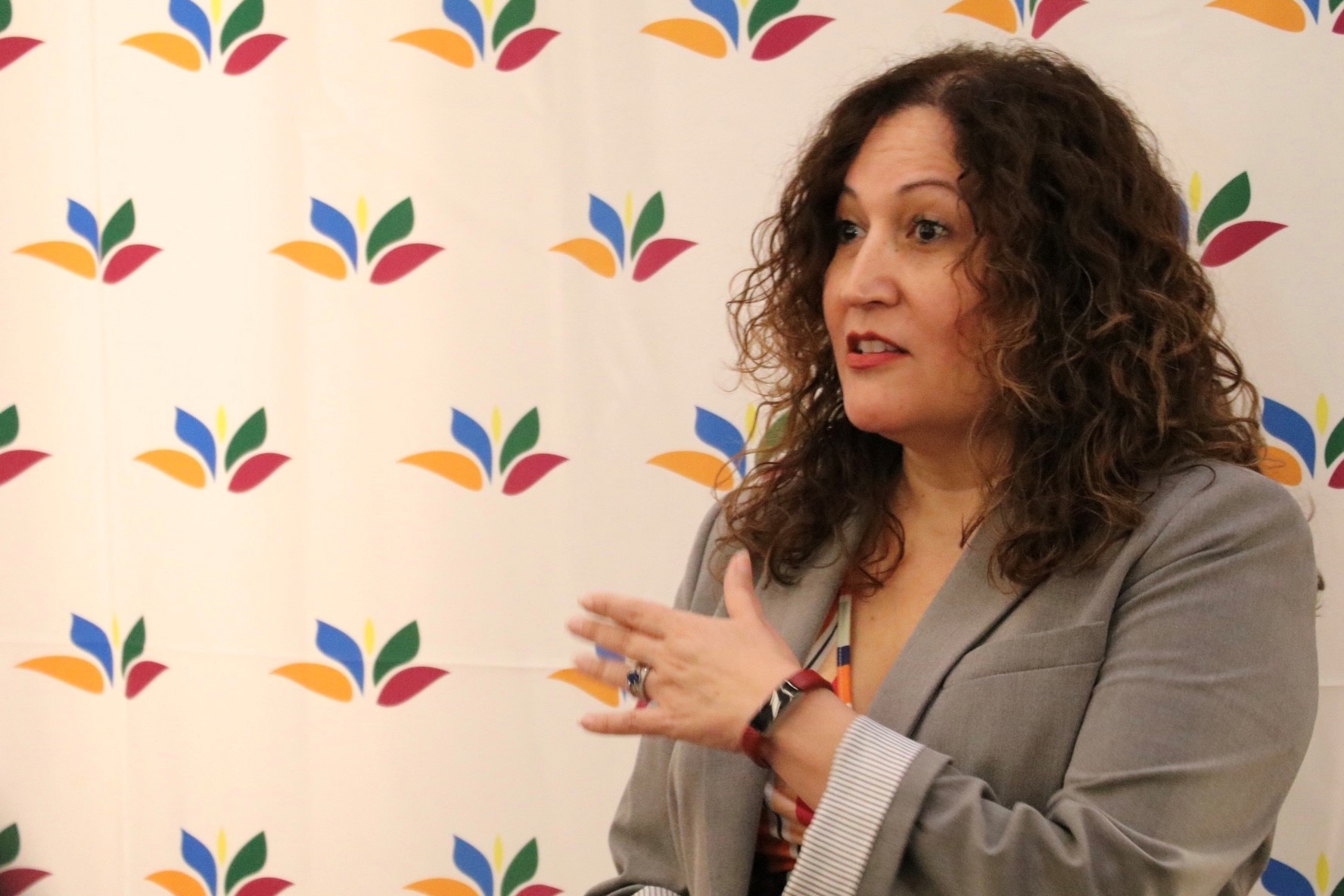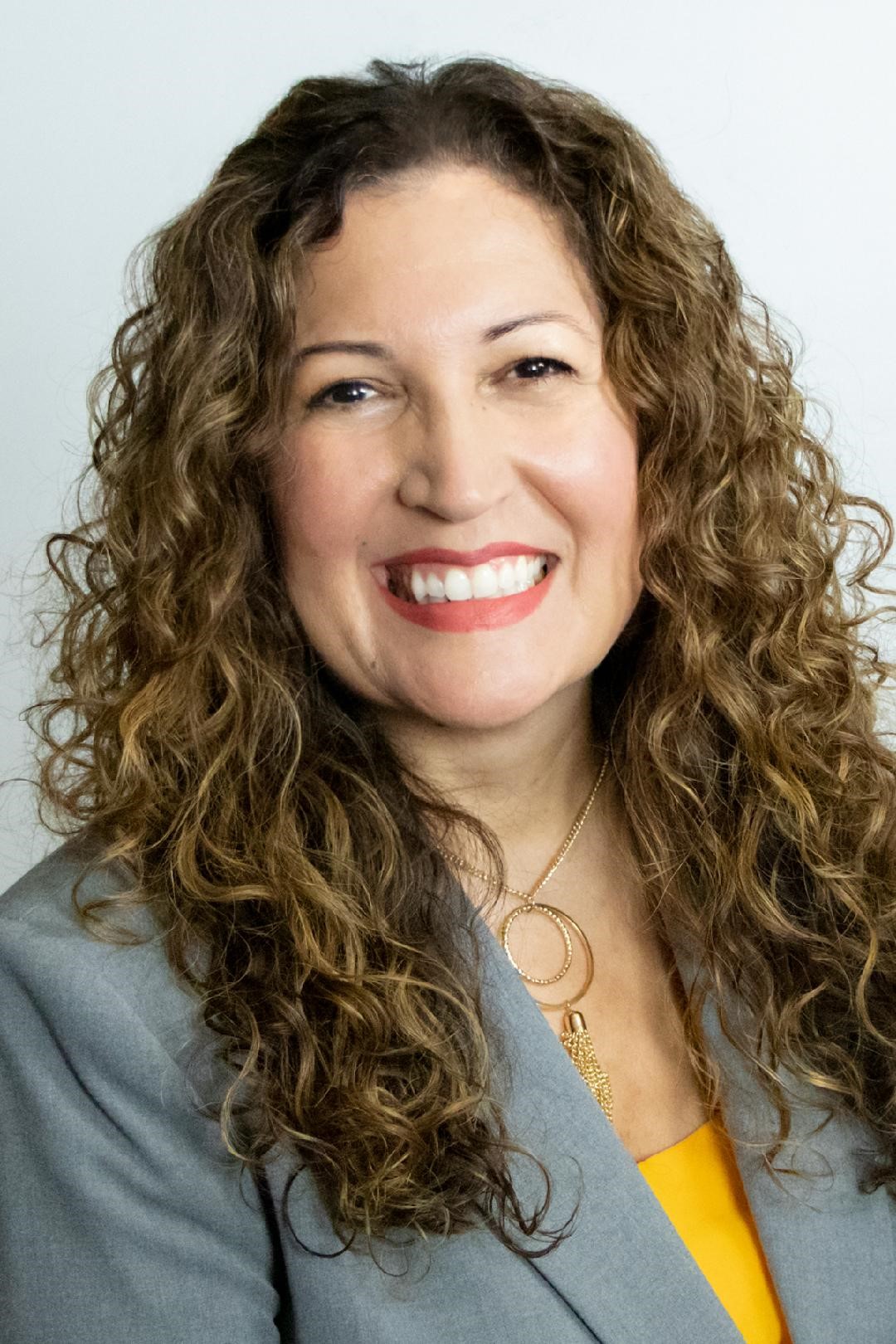Posted on October 18, 2021 by Amanda Cerreto
October 19, 2021 - The College for Health, Community and Policy (HCaP) at The University of Texas at San Antonio aims to improve the well-being of communities by serving the underserved, and faculty try to instill this mission into every student that walks through the door.
 When Leti Cavazos
'12 entered the
Master of Social Work program
at UTSA, she had already been affecting change in San Antonio - but her education and experiences afterward would truly live up to HCaP's mission.
When Leti Cavazos
'12 entered the
Master of Social Work program
at UTSA, she had already been affecting change in San Antonio - but her education and experiences afterward would truly live up to HCaP's mission.
After many years building programs for shelters, non-profit institutions, and recovery centers, Cavazos made the bold move - especially during the pandemic - to open a business to serve those who were perhaps hit hardest by the pandemic.
"The pandemic was my wake up call of, ‘what am I doing with my life?'" said Cavazos. "I’ve been building programs for my whole career. And so I thought, why can’t I build something for myself?"
Cavazos founded The Canneta Center for Healing and Empowerment , which opened its doors to the Dallas-Fort Worth area in April of 2021. It provides comprehensive, therapeutic counseling for adolescents, individuals, and couples. In addition to counseling, the highly-trained staff offers co-parenting sessions, psychoeducational groups and pre-marital classes.
Prior to opening the center, Cavazos had worked in a variety of nonprofits and shelters that helped form her ideas on how to run a program effectively to help the community's most vulnerable citizens.
 Upon her move from San Antonio to the Dallas-Fort Worth area, she began work at the city's largest domestic violence center.
Upon her move from San Antonio to the Dallas-Fort Worth area, she began work at the city's largest domestic violence center.
“It was an amazing experience,” Cavazos reflected. “In San Antonio, we have the participants there for roughly six months to try and help stabilize them. In this shelter, we only had 45 days.”
Using her foundation as a program-builder, Cavazos then helped build the foundation for the first men's domestic violence shelter in Texas. She went on to build more programs for other organizations, including a long-term residential home for women and children in crisis.
“I was able to design the program to make sure that we were doing our best to help them not only overcome the trauma, but build capacity to gain employment, and get the skills to increase their earning potential.”
When she was ready to branch out and start her own program, she reflected on her experiences in the field as well as her experiences with her employers. She knew she wanted to build something different for both clients and employees. The Canneta Center has a twofold mission for Cavazos: to serve the vastly underserved Hispanic population of DFW, and to empower employees to dictate their own worth by instituting a sliding pay scale.
 Coming from San Antonio, Cavazos was very surprised to see the lack of services in the DFW area for the Hispanic population.
Coming from San Antonio, Cavazos was very surprised to see the lack of services in the DFW area for the Hispanic population.
“The more I went out to talk to people, the more I realized it was a missing niche,” she said. Because the need was so strong, services around the area began sending clients to the Canneta Center. Not even a year into its founding, the Center has a memorandum of understanding (MoU) with a local foundation that will financially support members of the Hispanic population in need of counseling.
“That's a huge step, because there's already a stigma with mental health within the community,” Cavazos said. “And now that the financial barrier is taken away, we'll hopefully knock down some other walls to help people get services and not feel shame about it.”
 The Canneta Center is more than a mental health facility; they provide professional training to enhance clinical development, including topics such as research trends, Spanish-speaking trainings and seminars on how to work with a Spanish-speaking population. They have become so popular - and attracted practitioners from all over the world - that the Center has had to put a cap on attendance.
The Canneta Center is more than a mental health facility; they provide professional training to enhance clinical development, including topics such as research trends, Spanish-speaking trainings and seminars on how to work with a Spanish-speaking population. They have become so popular - and attracted practitioners from all over the world - that the Center has had to put a cap on attendance.
Beyond its services, the Center continues to give back in other ways; employees volunteer with the Hispanic Women’s Network of Texas (HWNT) and the Latinas in Progress Program, which mentors high school students and puts them on the path to college.
“That’s one of the things that I feel really passionate about,” Cavazos said. “If you look at the number of Latinas that have master’s and doctorate degrees, we're the lowest of all demographics.”
While the growth of the Canneta Center has been tremendous, Cavazos admits it wasn't without its challenges. “I’m not naturally an extrovert, and having to go out and network and try to help them understand why they should partner with us has been a real growth for me,” Cavazos said.
Despite that, Cavazos feels lucky to have a talented group of willing practitioners to jump on board. “I probably have the best group of people that without hesitation signed up,” she said. “And then seeing the impact that they’re having, and knowing that we’re actually serving a community that that hadn’t really been served before, it just fills my heart every time.”

